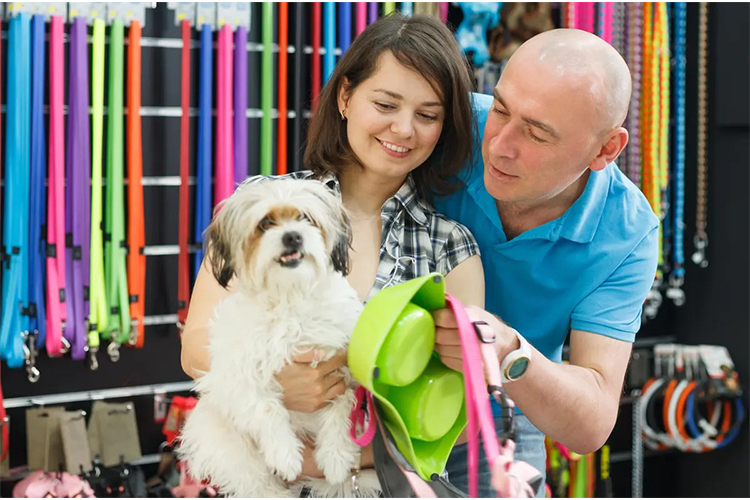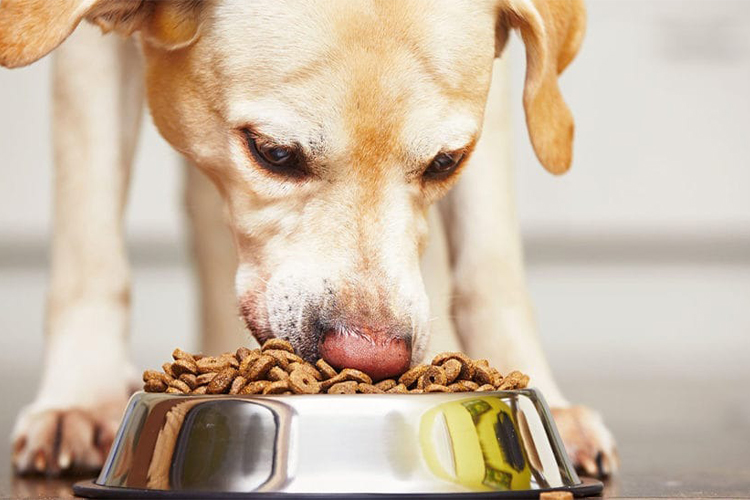As a pet owner, you want the best for your furry companion. Whether you have a dog, cat, bird, or any other animal, you want to make sure that they are happy, healthy, and well-cared for. One of the ways to achieve this is by buying high-quality pet products. However, with so many options available in the market, it can be overwhelming to choose the right one. In this article, we will discuss some important things to keep in mind when buying a pet product.
Quality
The first and foremost thing to consider when buying a pet product is the quality of the product. You want to ensure that the product is made with high-quality materials that are safe for your pet. Low-quality products can be harmful to your pet and may even cause health problems. Look for products that are made by reputable brands and have good customer reviews.

Purpose
Before buying a pet product, it’s important to consider its purpose. For example, if you’re buying a bed for your dog, you need to consider their size, sleeping habits, and any medical conditions they may have. Similarly, if you’re buying a toy for your cat, you need to consider their age, activity level, and preferences. Understanding the purpose of the product will help you choose the right one for your pet.
Size
Another important factor to consider when buying a pet product is the size. You need to ensure that the product is the right size for your pet. For example, a collar that is too tight can cause discomfort, while a collar that is too loose can slip off. Similarly, a bed that is too small may not provide enough support, while a bed that is too big may not provide the necessary warmth and comfort. Measure your pet accurately before making a purchase.
Material
The material of the pet product is also an important factor to consider. You want to ensure that the material is safe for your pet and will not cause any allergies or irritations. For example, if you’re buying a food bowl, make sure that it’s made of non-toxic material. If you’re buying a leash, make sure that it’s made of strong and durable material.
Price
Price is also an important factor to consider when buying a pet product. While you don’t want to compromise on quality, you also don’t want to overspend. Look for products that are within your budget and offer good value for money. Consider the long-term benefits of the product, such as durability and functionality, before making a purchase.

Safety
The safety of your pet should always be a top priority when buying a pet product. Look for products that meet safety standards and have been tested for safety. Avoid products that have been recalled or have a history of causing harm to pets. Check for any potential hazards, such as loose parts or sharp edges, before using the product.
Age and Life Stage
Your pet’s age and life stage are important factors to consider when buying a pet product. For example, a puppy may need a different type of food than an adult dog, while an older dog may need a different type of bed than a younger dog. Cats also have different nutritional needs depending on their age and life stage. Make sure to choose products that are appropriate for your pet’s age and life stage.
Health Conditions
If your pet has any health conditions or special needs, it’s important to choose products that accommodate those needs. For example, if your dog has joint problems, you may want to choose a bed that provides extra support. If your cat has allergies, you may need to choose a food that is free of certain ingredients. Consult with your veterinarian to determine what products will work best for your pet’s specific health needs.
Brand Reputation
When choosing a pet product, it’s important to consider the reputation of the brand. Look for brands that have a good reputation for producing high-quality, safe products. Read reviews from other pet owners and do your research before making a purchase. Avoid purchasing products from unknown or untrustworthy brands.
Environmental Impact
It’s also important to consider the environmental impact of the products you are purchasing for your pet. Look for products that are eco-friendly and made from sustainable materials. Avoid products that use excessive packaging or contain harmful chemicals. By choosing eco-friendly products, you can reduce your pet’s carbon footprint and contribute to a healthier planet.

Multi-Purpose Products
When possible, look for pet products that have multiple uses. For example, a carrier that doubles as a car seat can be a great investment. A bed that can be easily folded and stored can be a great option for those with limited space. Multi-purpose products can save you money and storage space.
Warranty and Returns
Before making a purchase, make sure to check the warranty and return policies of the product. Look for products that offer a warranty or guarantee, as this can provide you with peace of mind in case something goes wrong. Additionally, make sure that the return policy is clear and easy to understand.
Convenience
Consider the convenience of the product when making a purchase. For example, if you travel frequently with your pet, you may want to choose a carrier that is easy to transport. If you have a busy schedule, you may prefer a self-cleaning litter box or an automatic feeder. Choosing products that are convenient to use can make caring for your pet easier and less time-consuming.
Personal Preference
Finally, it’s important to consider your personal preferences when choosing a pet product. For example, you may prefer a certain color or style of collar for your dog. You may prefer a specific type of litter for your cat. By choosing products that you like, you can make sure that you and your pet are happy with the product.
In conclusion, choosing the right pet products requires careful consideration. Keep in mind your pet’s age, life stage, health conditions, and environmental impact, as well as brand reputation, multi-purpose options, warranty and returns, and personal preference. By choosing high-quality, safe products that meet your pet’s specific needs, you can provide them with the best possible care and ensure their happiness and well-being.












